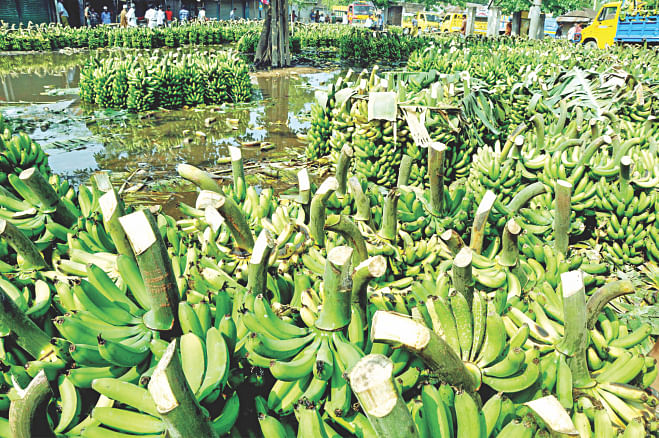Govt found not serious
Govt found not serious
HC asks once more about steps for safe food

Amid growing outcry against adulterated and poisonous food, the High Court has once again taken note of the public concern, asking the government to explain the steps it has taken so far in this regard.
The HC yesterday ordered the authorities to inform it within 20 days about the measures taken to stop use of hazardous chemicals and preservatives in food items by a section of unscrupulous businessmen and farmers.
The directive followed a recent government laboratory test that found as high as 40 percent of the food samples contain excessive toxic substances.
The HC issued the rule that also reminded all concerned that the court had earlier issued orders against food adulteration but the criminal act has not stopped due to lax monitoring by the government and slack enforcement of relevant laws.
As a result, people still have to buy and take contaminated food, the court noted during the hearing on a writ petition, following a report in The Daily Star on Monday.
The ruling also comes six months after the government passed a stringent food safety law, replacing the Pure Food Ordinance of 1958.
But despite the new law, food adulteration continues unabated.
Under the law, the maximum punishment for food adulteration is 14 years' jail sentence.
The food ministry had originally drafted the law providing for death penalty as highest punishment for the offence, but the cabinet changed it.
Yesterday, an HC bench comprising Justice Mirza Hussain Haider and Justice Muhammad Khurshid Alam Sarkar also directed the government to inform it within 20 days about the steps taken against those responsible for poisoning food items.
The court asked the health and food secretaries and director general of Bangladesh Standards and Testing Institution (BSTI) to submit to it a report to this effect by May 18.
It issued the rule on the authorities concerned to explain why they should not be directed to ensure production and sale of safe food and to take legal action against the people responsible for marketing and selling adulterated food.
Nine top government officials, including the secretaries of health, food, law, commerce and industries ministries, inspector general of police and directors general of BSTI and directorate of health services, are respondents to the rule.

Supreme Court lawyer Kazi Mynul Hasan filed the petition, requesting the HC to pass necessary orders to stop food adulteration and punish the culprits.
Earlier in 2010 and 2012, the HC had directed the police to file cases against food adulterators under the Special Powers Act of 1974. The law provides for death penalty as maximum punishment for the offence.
But there is no known instance that a person got the capital punishment for food adulteration, although the government set up food courts in all the districts last year and enacted a tough food safety law in October.
Quoting a FAO-sponsored test at a government laboratory -- National Food Safety Laboratory -- this newspaper reported on Monday that 40 percent of the 82 food samples tested in the lab contained banned pesticides and toxic substances beyond permissible limits.
Carrot, bean, tomato, lettuce, capsicum, banana, apple, pineapple and mango were contaminated with highly toxic pesticides. And the presence of banned pesticide Aldrin was found in milk, the test found.